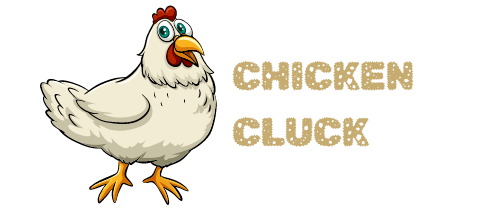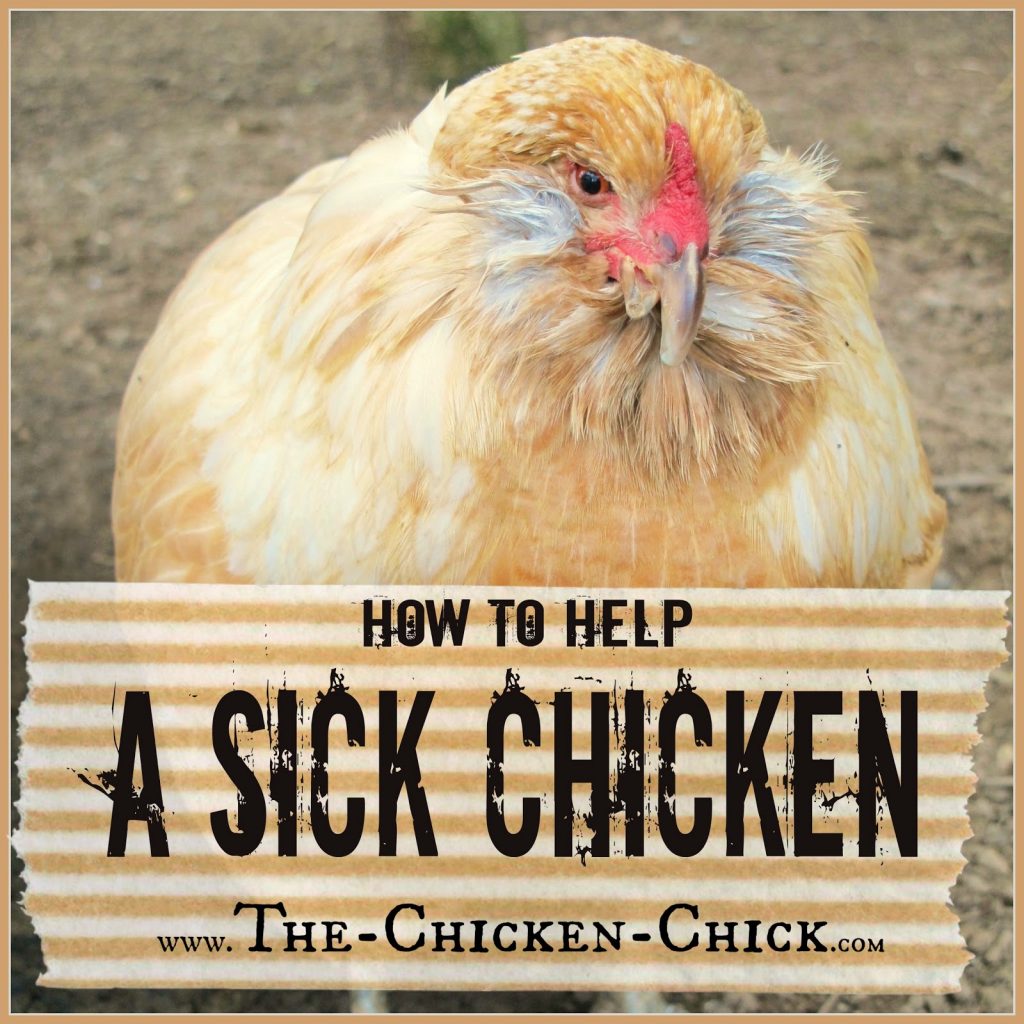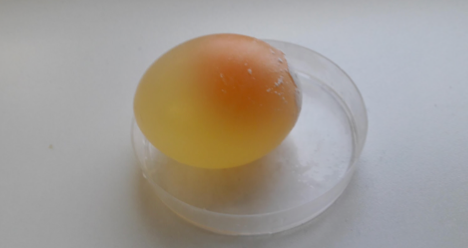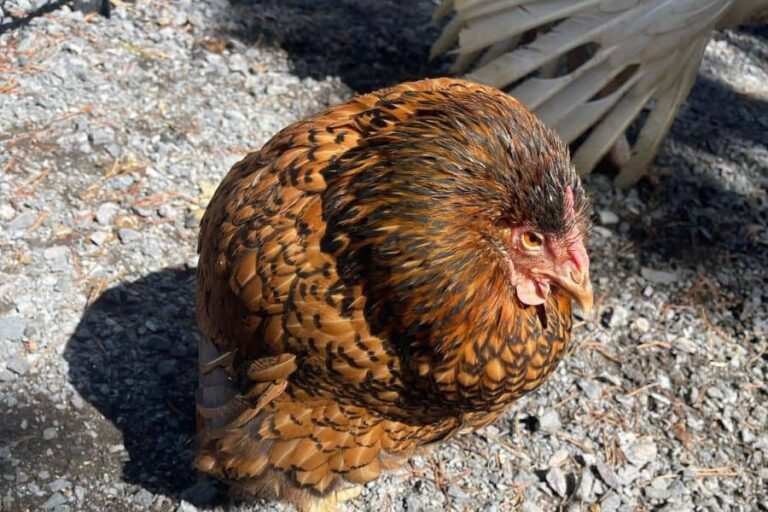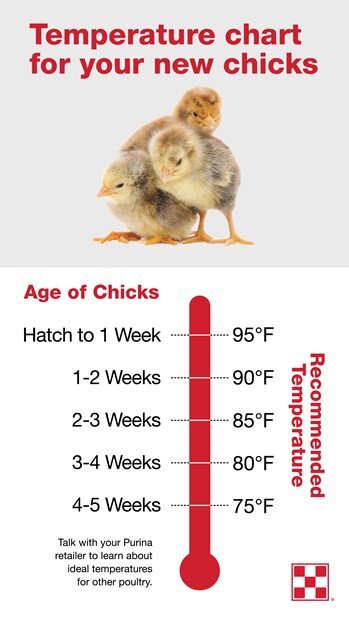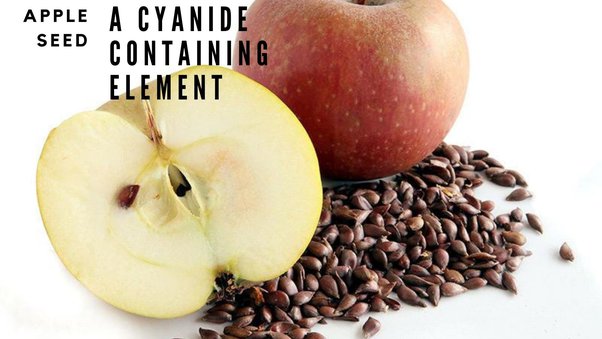To treat a sick hen, first isolate it and then consult a veterinarian for a proper diagnosis. Provide supportive care, including clean water and nutritionally balanced feed.
Raising backyard chickens has its set of challenges, one of which is tackling hen health issues. It is critical for poultry keepers to act swiftly when a hen falls ill. A sick hen will often exhibit signs such as lethargy, reduced egg production, abnormal breathing, or changes in behavior or appearance.
It’s essential to separate the affected bird from the flock to prevent the spread of potential diseases and to closely monitor its symptoms. Securing professional advice from a vet ensures appropriate treatment, be it antibiotics for infections or other specific medications. Meanwhile, maintaining a clean coop and reducing stressors can facilitate recovery. By being attentive to their health, you can ensure your hens receive the care they need and maintain a healthy, productive flock.
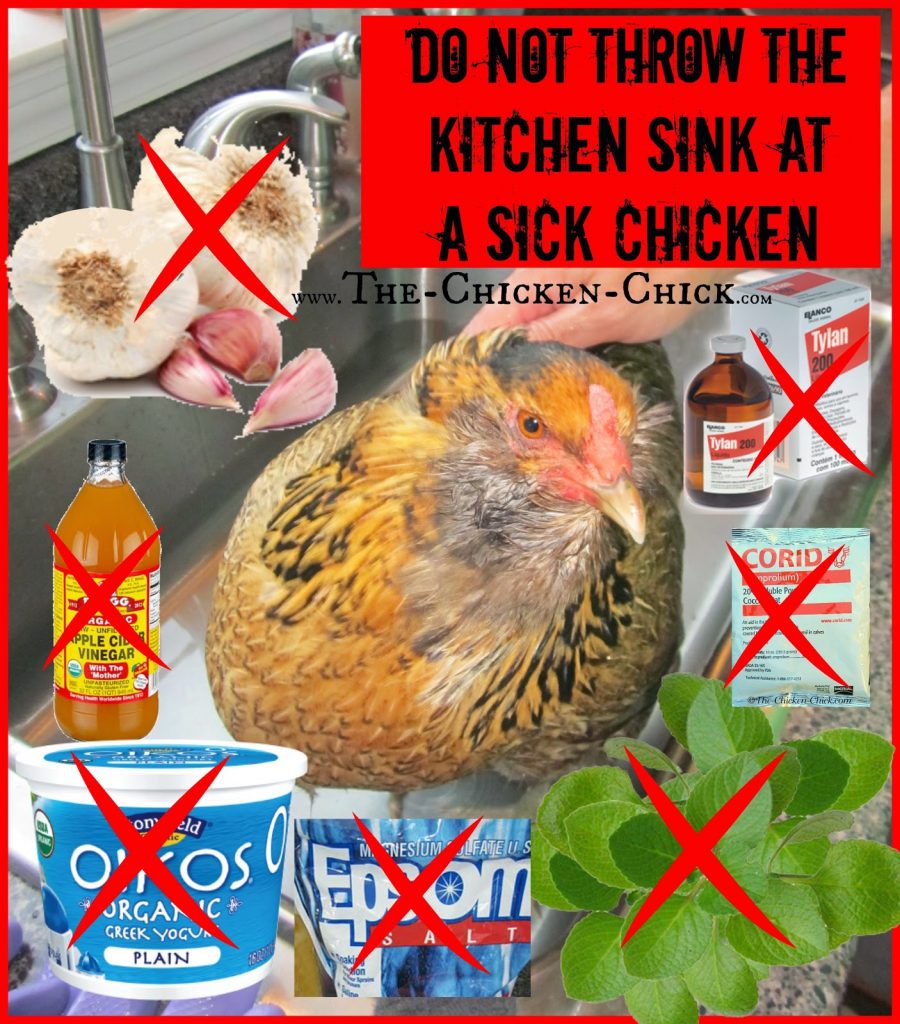
Credit: the-chicken-chick.com
Signs Of Illness In Hens
When your feathered friend starts acting differently, it’s crucial to spot these changes early. Recognizing the early signs of illness in hens can mean the difference between a quick recovery and serious health problems. Poultry parents should be familiar with both behavioral changes and physical symptoms that signal their hen is not feeling well. Let’s explore these indicators more closely.
Behavioral Changes
Like us, hens show changes in behavior when they’re sick. Keep an eye out for these signs:
- Decreased Activity: A hen that’s usually lively but now prefers to rest may not be well.
- Isolation: If your hen is separating from the flock, it’s a hint that something’s wrong.
- Lack of Appetite: Pay attention to a hen that stops eating or shows less interest in food.
- Changes in Vocalization: Unusual sounds or a quiet hen can signal distress.
- Irritability: A normally calm hen that becomes aggressive could be feeling under the weather.
Physical Symptoms
Physical signs often accompany behavioral changes. Here are common symptoms to look for:
| Symptom | What to Look For |
|---|---|
| Ruffled Feathers | Feathers that stay fluffed up can be a sign of illness. |
| Respiratory Issues | Listen for coughing, sneezing, or labored breathing. |
| Swollen Eyes or Beak | Swelling around these areas may indicate an infection. |
| Diarrhea | Check for watery or discolored droppings. |
| Weight Loss | A light or emaciated hen might be battling an illness. |
| Comb or Wattle Changes | Look for discoloration or a droopy appearance. |
Monitoring your hen for both behavioral and physical changes is key. Early detection can help you take prompt action and seek veterinary care if necessary. Stay attentive and keep your hens healthy and happy!
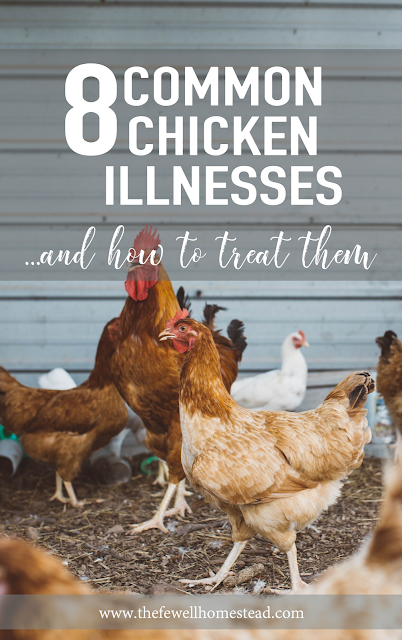
Credit: thefewellhomestead.com
First Response To A Sick Hen
When hens fall ill, quick action can greatly improve their chances of recovery. Important first steps can set the course for their healing. Let’s dive into how to best care for a sick hen, focusing on isolation, warming, and comfort.
Isolate The Bird
Separation is crucial to protect other birds from potential illness. Use these steps:
- Find a quiet, safe space away from the flock.
- Place the sick hen in a clean, separate coop or cage.
- Ensure fresh water and food are within easy reach.
Maintain Warmth And Comfort
Keeping your hen warm helps her body fight off sickness. Follow these tips:
- Put the hen in a draft-free, warm area.
- Use a heat lamp if necessary, but avoid overheating.
- Offer soft bedding to rest on.
Remember, gentle care and observation can save a hen’s life. Take notes on behavior and symptoms to share with a vet if needed.
Assessing The Hen’s Condition
When your hen seems unwell, the first step is a thorough check-up. Detecting illness early can make all the difference. Let’s dive into how to assess your hen’s condition properly.
Checking For Parasites
Parasites can be a common issue for hens, affecting their health drastically.
- Examine the hen’s feathers and skin for mites, lice, and ticks.
- Check around the vent, under wings, and the neck area. These are hot spots for parasites.
If parasites are present, treatment will be necessary. Over-the-counter treatments or advice from a vet can help.
Observing Droppings
Hens can’t tell us how they feel, but their droppings are telling. Consistency, color, and frequency matter.
| Dropping Feature | Healthy Signs | Unhealthy Signs |
|---|---|---|
| Consistency | Firm | Watery or extremely hard |
| Color | Brown or green | Yellow, white, or red streaks |
| Frequency | Regular | Less frequent or more frequent |
Note changes and consult a vet for persistent issues.
Nutrition And Hydration
When your hen falls ill, proper care becomes critical. A key part of nursing her back to health is focusing on nutrition and hydration. Weakness can quickly set in without adequate food and water. What you choose to feed her and ensuring she gets enough to drink can make all the difference.
Dietary Adjustments
Sick hens need an easy-to-digest diet that’s rich in nutrients.
- Start with high-protein feed or scrambled eggs for added strength.
- Introduce leafy greens and warm oatmeal which are soothing on the gut.
- Avoid treats that are tough to digest, like whole grains or beans.
Consider adding vitamin supplements to their feed, but always consult a vet first.
| Food Type | Benefits |
|---|---|
| High-Protein Feed | Strengthens weakened birds |
| Leafy Greens | Provides essential nutrients |
| Warm Oatmeal | Gentle on the digestive system |
Ensuring Adequate Water Intake
A well-hydrated hen is on the fast track to recovery.
- Ensure fresh water is always available.
- Keep the water clean and change it at least twice a day.
- Use shallow dishes so it’s easy for your hen to drink.
- In cold weather, prevent water from freezing.
If the hen isn’t drinking, gently dip her beak into the water but don’t force water into her mouth.
A hydrated hen is a happier, healthier hen. Keep a close eye on both food and water intake. Monitor her progress and adjust her diet as she improves.
Administering Medication
When your hen is feeling under the weather, quickly administering the right medication can play a crucial role in her recovery. A sick hen requires prompt and accurate treatment. Understanding how to correctly administer medication ensures your feathered friend gets back to her peppy self in no time.
Choosing The Right Medicine
Identifying the proper medicine is essential. Determine the illness symptoms your hen exhibits. Research or consult a veterinarian to identify the correct medication and ensure it’s specific to poultry use. It’s vital to opt for medicines that target the hen’s specific ailment to promote effective healing.
- Consider antibiotics for bacterial infections.
- Use antifungals for yeast-related sicknesses.
- Antiparasitics are essential for infestations.
Proper Dosage And Application
Administering the correct dosage is just as important as the medicine type. Always follow the guidelines listed on the medication or advised by the vet.
Some tips for proper dosage and application:
- Measure liquids with a syringe for accuracy.
- Mix powders thoroughly with food or water.
- Apply topical treatments gently to affected areas.
Record every treatment in a logbook. Note the time, dosage, and the hen’s response to the medication. This information is crucial for tracking the healing process and any potential side effects.
| Medicine Type | Dosage | Method of Application |
|---|---|---|
| Antibiotics | Dependent on weight | Orally or Injection |
| Antiparasitics | Specified on label | Orally or topically |
| Antifungals | As advised by vet | Orally or with food |
Natural Remedies For Recovery
When your feathered friend feels under the weather, natural solutions can offer comfort and hasten healing. Gentle, non-invasive remedies often support a hen’s immune system and promote recovery without harsh chemicals. Explore herbs and supportive therapies to nurture your hen back to health.
Herbs And Supplements
Echinacea boosts immunity, while garlic, known for its antibacterial properties, keeps infections at bay. Oregano serves as a natural antibiotic. Offer these herbs fresh or dried mixed into your hen’s feed.
- Apple Cider Vinegar: A few drops in water may aid digestion.
- Vitamins A and E: Promote recovery and improve health.
- Probiotics: Found in yogurt, they support gut health.
For dosage, consult a vet familiar with poultry care. Overuse can harm your hen.
Supportive Therapies
Warmth comforts a sick hen. Use heat lamps to maintain a cozy coop.
Allow rest in a quiet, safe area away from the flock. This reduces stress and aids recovery.
Hydration is critical. Ensure fresh water is always available. Add electrolytes to support energy levels.
| Item | Benefits |
|---|---|
| Heat Lamp | Provides comfort and warmth |
| Quiet Space | Encourages rest and reduces stress |
| Electrolytes | Boosts energy and hydration |
Massage can increase circulation and ease discomfort. Use gentle strokes along the hen’s body to relax her muscles.
Monitoring The Hen’s Progress
Keeping a close eye on your sick hen is crucial in nursing her back to health. Daily checkups and being aware of potential complications can make all the difference. Prompt action can pave the way for a swift recovery.
Daily Checkups
Daily observations are non-negotiable when monitoring a hen’s recovery. Take notes on symptoms, behaviors, and food intake. This helps track progress and any concerning changes. Consistency is key to ensuring your hen’s wellbeing.
- Check for normal behavior and energy levels.
- Monitor eating and drinking habits.
- Observe the hen’s droppings for any abnormalities.
- Examine her comb and wattle for proper color and vitality.
Potential Complications To Watch For
Be vigilant for signs of worsening health or complications. Immediate veterinary care might be necessary if you notice any of the following:
| Symptom | Action Needed |
|---|---|
| Difficulty Breathing | Seek urgent veterinary help. |
| Lethargy | Ensure a stress-free environment. |
| Changes in droppings | Adjust diet or medication accordingly. |
| Swelling or discharge | Evaluate for signs of infection. |
By maintaining a disciplined schedule of daily checkups, you can set your hen on the right track to recovery. Keep an eye out for any red flags that could indicate a turn for the worse. Remember, prompt actions often lead to positive outcomes.

Credit: www.freedomrangerhatchery.com
Preventative Measures For Flock Health
Your flock’s health is crucial.
Just like us, hens can get sick. Preventative measures can help keep your flock healthy and happy. In this section of our blog, discover key ways to prevent illness in your hens.
Regular Cleaning Routines
Clean homes prevent sickness. This rule applies to chickens too.
Establish a strong routine for cleaning. It’s a powerful way to protect your flock.
Here are steps to follow:
- Remove droppings daily. It will help control ammonia levels.
- Clean feeding and watering equipment weekly. It prevents the buildup of harmful bacteria.
- Replace bedding often. This ensures a fresh, dry environment.
Vaccinations And Prophylaxis
Vaccines are vital for preventing diseases. Ask a vet about vaccinations for your hens.
They protect against common illnesses.
Remember these points:
- Vaccinate early. Some vaccines need to be given to chicks.
- Follow a schedule. Keep track of all required shots.
- Consider the environment. Diseases vary by region.
When To Seek Veterinary Help
Noticing your feathered friend acting under the weather can be worrying. Quick action is crucial. Some symptoms demand immediate attention. This part of the guide dives into when it’s time to call the vet and what to expect.
Identifying Serious Illnesses
Certain signs should raise alarms. Look out for these symptoms:
- Lack of energy: The hen hardly moves or reacts.
- Changes in appetite: Stops eating or shows little interest in food.
- Abnormal droppings: Look for unusual color, consistency, or frequency.
- Respiratory distress: Difficult breathing, wheezing, or coughing.
- Swelling: Parts of the body, especially the head, neck, or eyes, seem puffed up.
These symptoms need a vet’s input. The faster your hen gets help, the better her chances.
Professional Diagnostics And Treatment
Thrifty home care is great, but sometimes hens need expert care. A vet can do tests to find the root of the problem.
What to expect from the vet visit:
- Physical exam: The vet checks your hen thoroughly.
- Lab tests: Samples may include blood, stool, or tissue.
- Imaging: X-rays or ultrasounds show what’s happening inside.
- Medication: The vet might prescribe drugs for recovery.
Follow the vet’s advice for a healthy hen. Remember, prompt treatment makes all the difference!
Caring For A Recovering Hen
Caring for a Recovering Hen often requires patience and attentiveness. Once your hen begins to show signs of recovery from illness, it’s essential to focus on reintegration and long-term health management. These steps are not just beneficial but necessary for her to regain strength and rejoin the flock as a productive member. We’ll guide you through the process, ensuring your hen has the best chance for a full recovery.
Reintroducing To The Flock
Reintroducing a hen to the flock must be done with care. Sickness can cause pecking order changes. Isolation may have made your hen vulnerable to bullying. Follow these tips:
- Quarantine Period: Keep your hen separate until fully healthy.
- Observation: Watch for any signs of relapse or weakness.
- Controlled Contact: Allow flock to see but not touch the hen first.
- Short Visits: Brief periods with the flock can ease the transition.
- Safe Space: Ensure the recovering hen has a place to escape if needed.
Long-term Health Management
Long-term health management is critical for your hen’s continued wellbeing. Implementing a continual care routine helps prevent future illness. Incorporate these practices:
| Nutrition | Monitoring | Environment |
|---|---|---|
| Provide a balanced diet with all essential vitamins and minerals. | Regularly check for any health concerns or abnormal behavior. | Keep the coop clean, dry, and well-ventilated at all times. |
Remember:
- Vet Visits: Schedule regular check-ups.
- Worming: Follow a deworming schedule recommended by a professional.
- Stress Reduction: Create a peaceful environment for your hens.
Conclusion
Caring for a sick hen requires patience, attention to detail, and prompt action. Remember the signs of illness and act quickly to provide the best outcome. With these tips and a gentle approach, your feathered friend has a strong chance for recovery.
Ensure a clean coop, proper nutrition, and regular check-ups for a healthy flock. Keep learning and stay prepared to protect your hens’ well-being.
